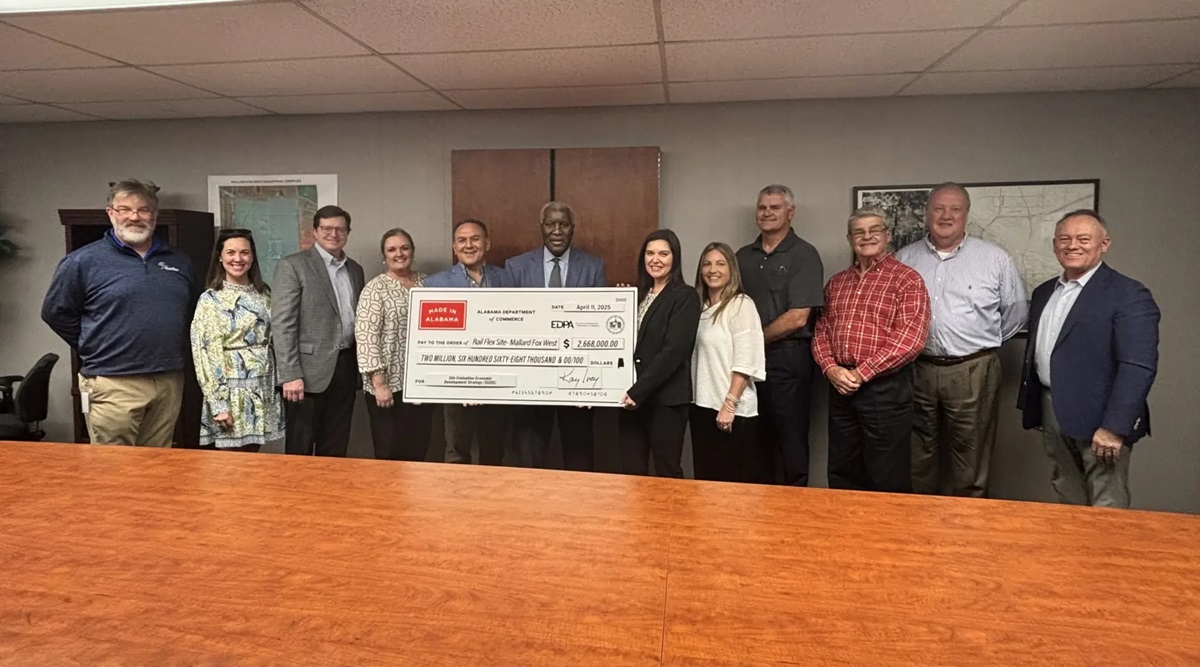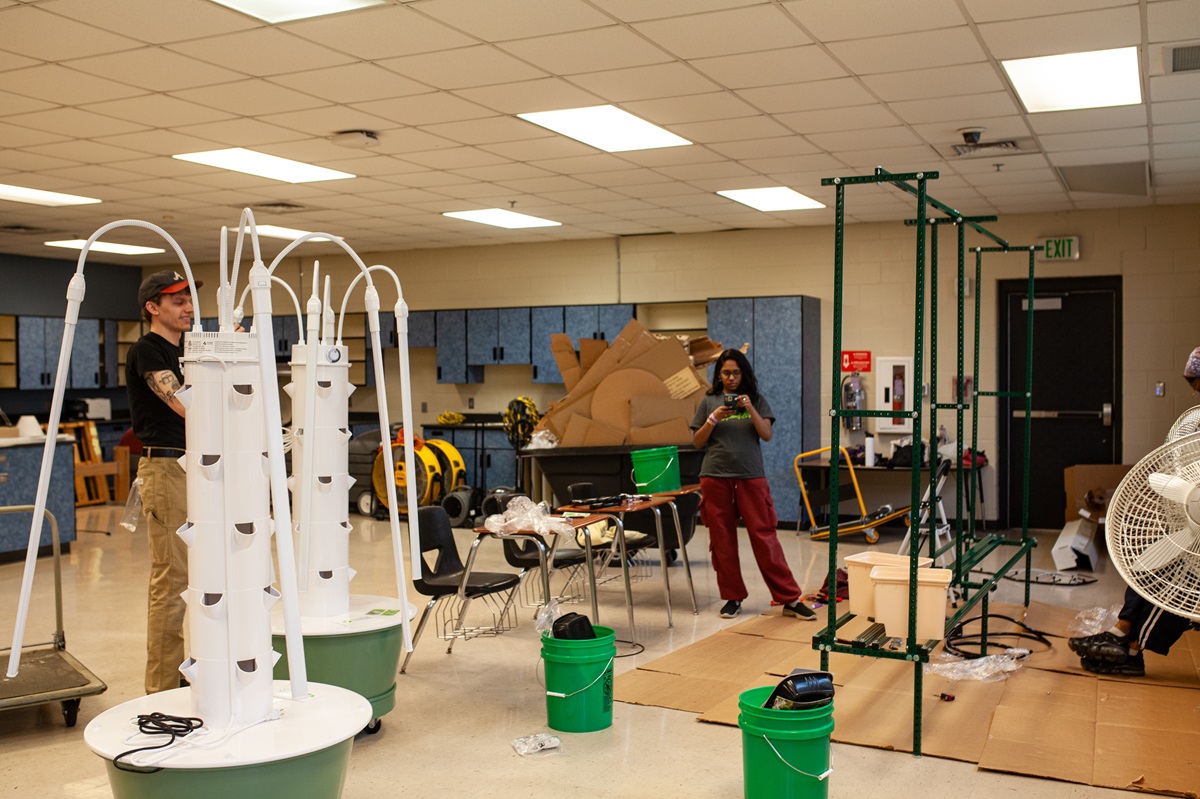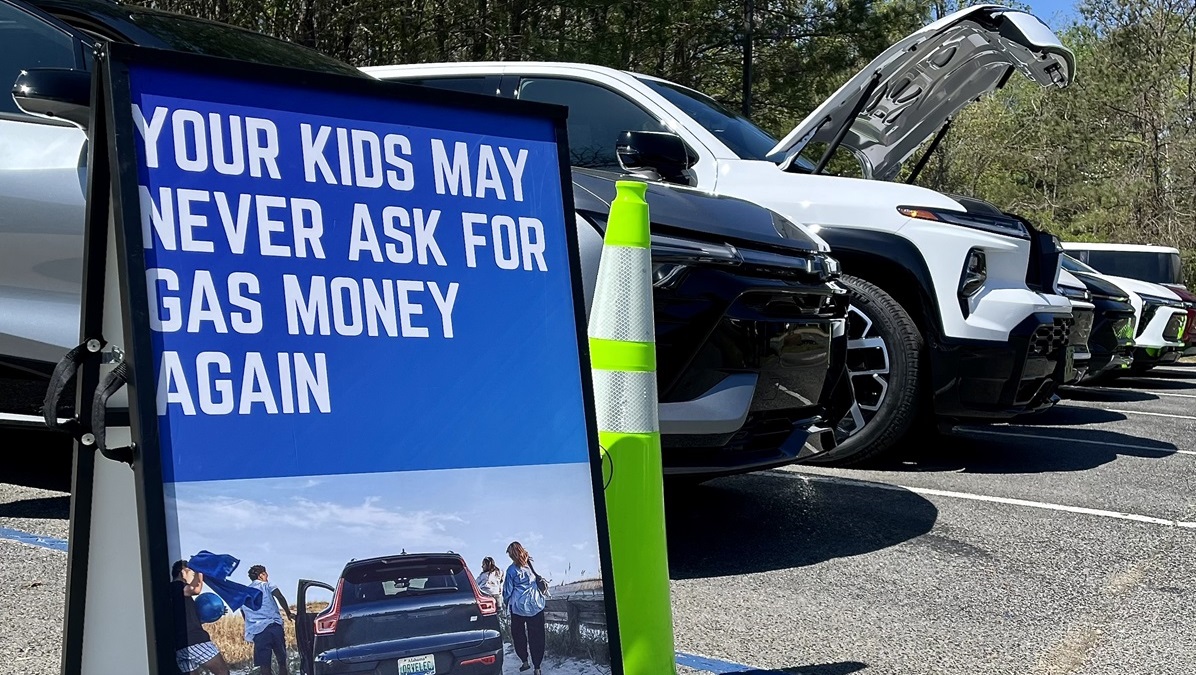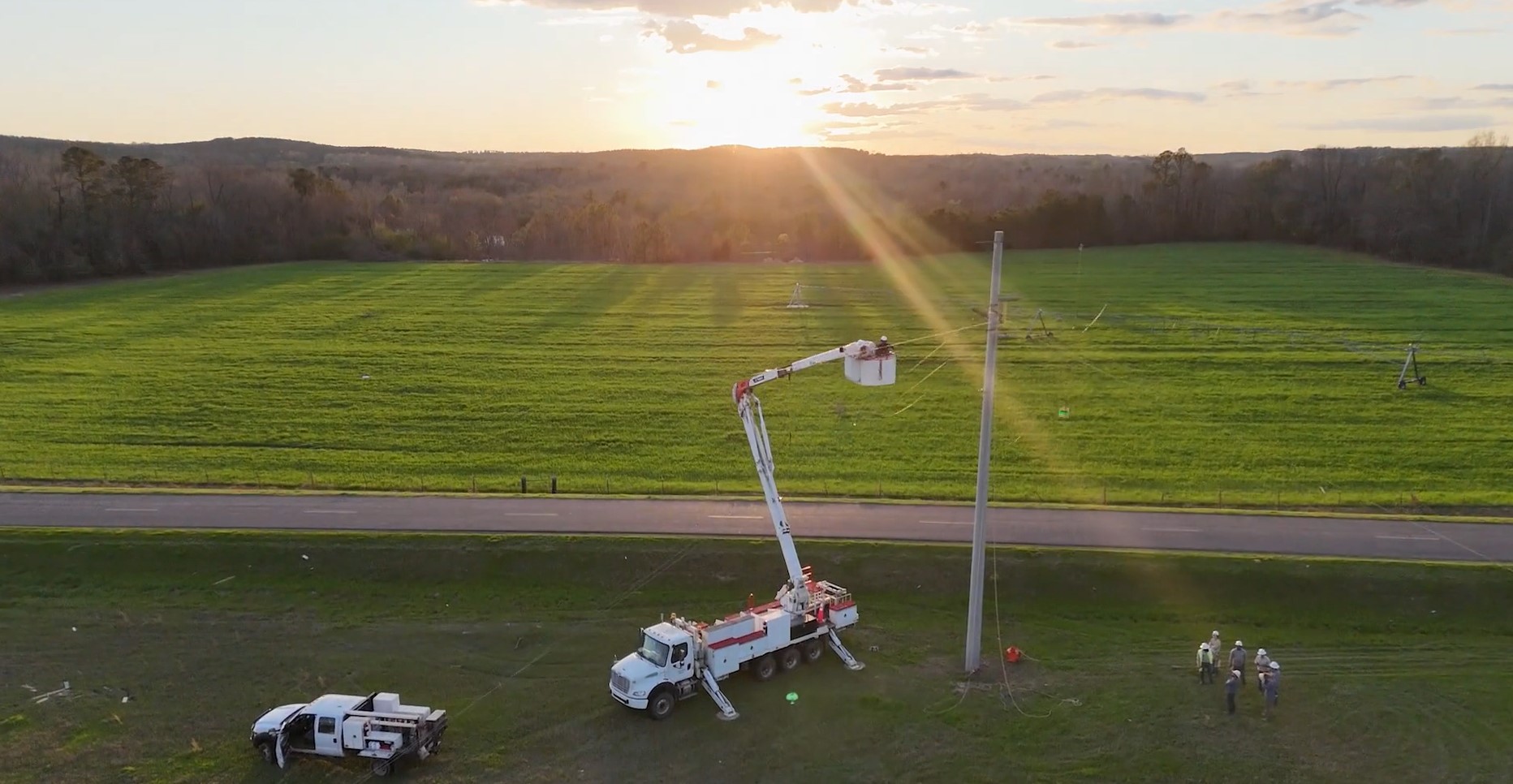Alabama will devote $82.45 million to improved broadband access

ADECA Director Kenneth Boswell shakes hands with Alabama Gov. Kay Ivey at the broadband funding announcement. (Hal Yeager / Governor's Office)
Alabama Gov. Kay Ivey is committing $82.45 million to making statewide broadband service an attainable goal. The funds, part of the Alabama Middle-Mile Network grant program, will be used by Fiber Utility Network, a corporation formed by eight of the state’s rural electric cooperatives.
“This is a great day for our state,” Ivey said Tuesday at the Central Alabama Electric Cooperative, near Prattville. “Achieving full broadband coverage is a journey, not a short trip, and today is an important step toward completing that journey. The Alabama Middle-Mile project will make our state a model for the nation in providing broadband capabilities.”
The Alabama Middle-Mile Network will fill gaps in broadband throughout the state, resulting in more feasible and cost-effective ways to ensure the availability of broadband service to homes, businesses and schools in rural areas. Funding for the Fiber Utility Network comes from the American Rescue Plan Act (ARPA), with the project approved by the Alabama Legislature earlier this year.
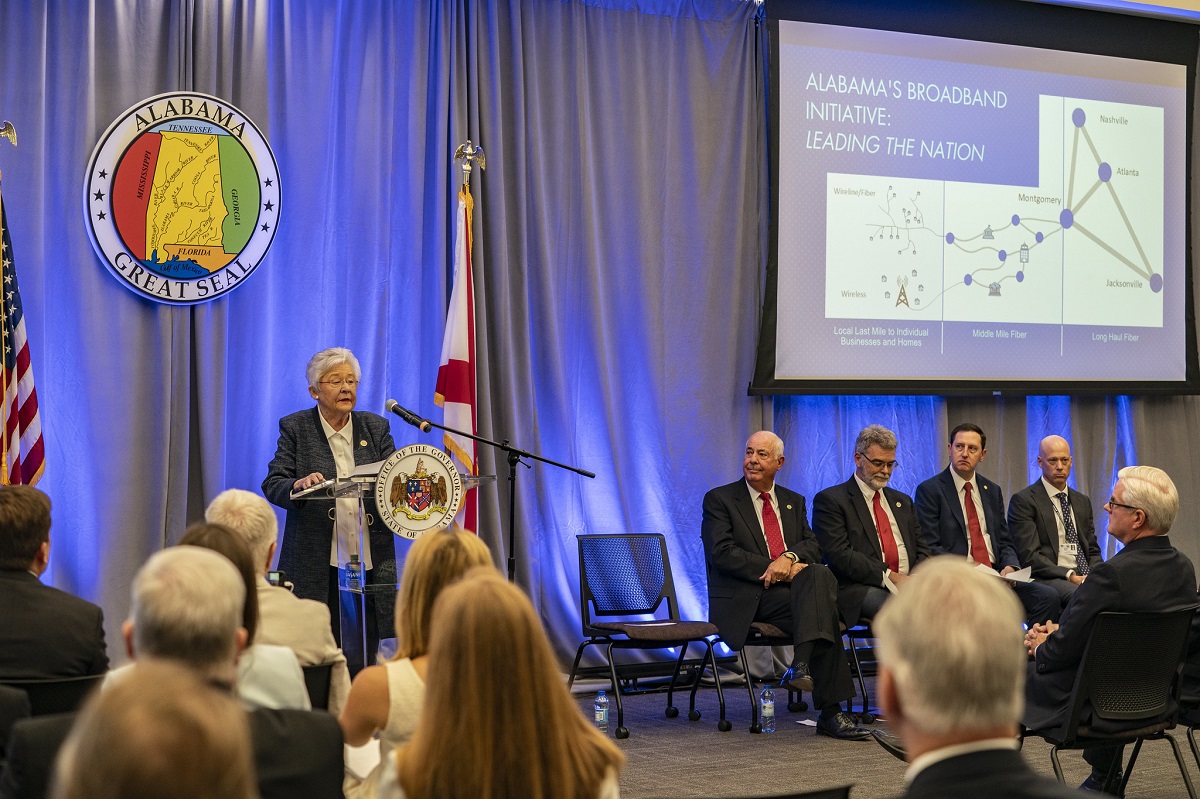
Alabama Gov. Kay Ivey speaks at the broadband announcement. (Hal Yeager / Governor’s Office)
The Fiber Utility Network will create a “middle-mile” network connecting almost 3,000 miles of existing and new fiber infrastructure within a three-year period, impacting more than 300 towns and cities across Alabama. When complete, the network will provide improved access to unserved areas for the “last-mile” projects that provide actual broadband availability. Once connected, residents will have the ability to become a customer of the last-mile broadband providers.
In addition to Central Alabama, the electric co-ops in the Fiber Utility Network are Coosa Valley, Covington, Cullman, Joe Wheeler, North Alabama, PowerSouth and Tombigbee.
“This is a transformative day for the state of Alabama. Thanks to the leadership of Gov. Kay Ivey, the Alabama Legislature and a broad coalition of support ranging from the business community to health care and education groups, our state is becoming a national leader in broadband expansion,” said Houston Smith, chairman of the Energy Institute of Alabama and vice president of Governmental Affairs for Alabama Power. “While today’s announcement is a big leap forward for our state, there’s still a long way to go. Alabama’s electric utilities are committed to improving the lives of every citizen of the state by continuing to lay the groundwork — and the infrastructure — for a future where all Alabamians have access to high-speed internet.”
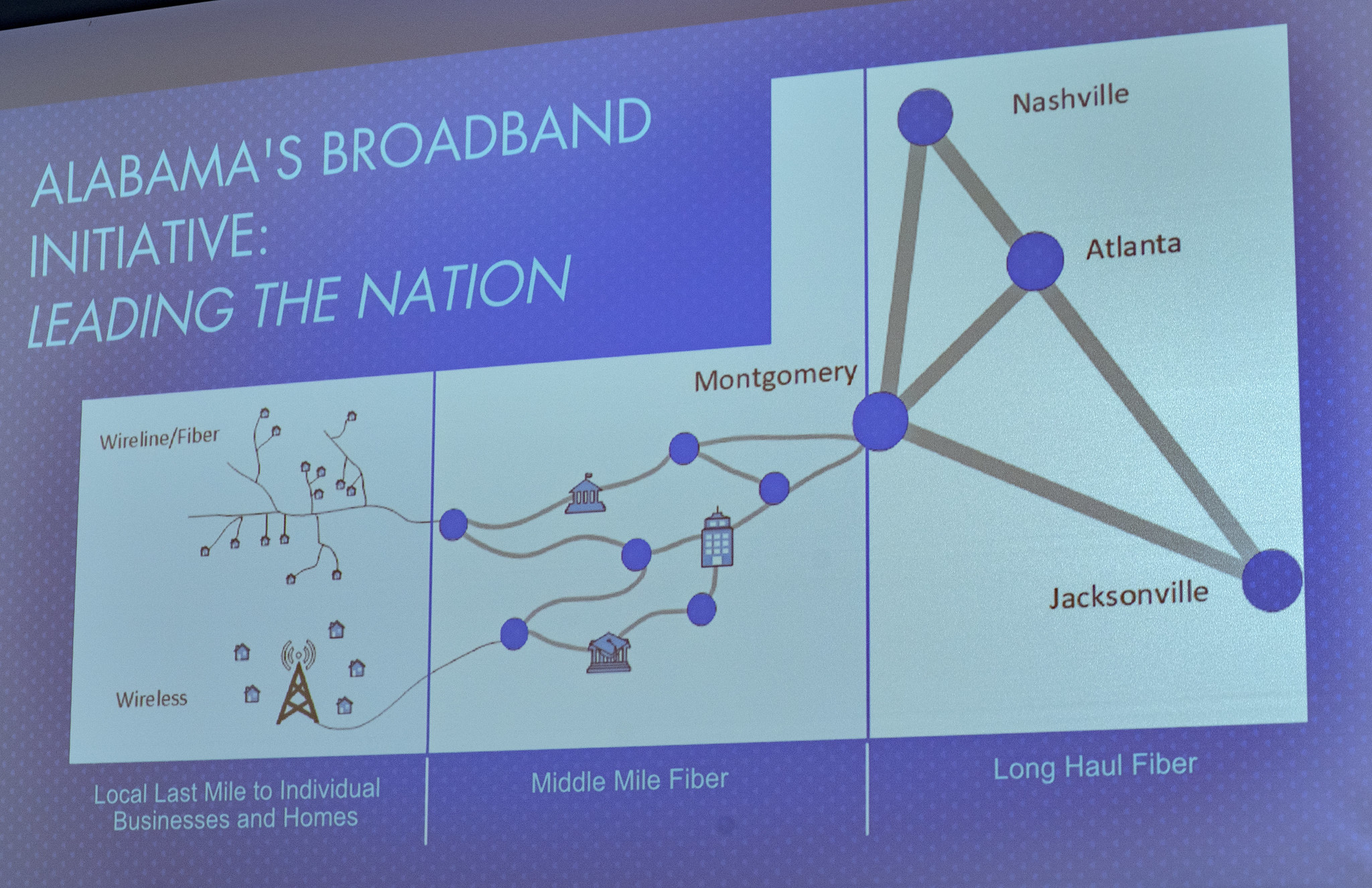
The latest funding will help the important “middle-mile” development to expand broadband in the state. (Hal Yeager / Governor’s Office)
The Alabama Department of Economic and Community Affairs (ADECA) is administering the grant through its Alabama Digital Expansion Division. The division was created by the Legislature and Ivey to target methods and means to supply broadband services to unserved and underserved areas of Alabama.
“The project is the springboard to supplying broadband services for rural residents, businesses, educational facilities and other community anchors,” said ADECA Director Kenneth Boswell. “I commend the Fiber Utility Network for their willingness to undertake this necessary step to ensure more Alabamians have access to these services.”

ADECA Director Kenneth Boswell speaks at the broadband announcement. (Hal Yeager / Governor’s Office)
Tom Stackhouse, president and CEO of the Central Alabama Electric Cooperative, is president of the Fiber Utility Network. He said achieving statewide broadband connectivity “is going to be transformative for Alabama, connecting many who were previously left out of the digital economy.”
Several legislators who have played key roles in broadband expansion participated in the announcement. State Sen. Clay Scofield is board chair of the Alabama Digital Expansion Authority (ADEA), which was created by legislative act in 2021 to develop a statewide connectivity plan for expanding high-speed internet. He said the initiative will “change our state for the better for generations to come.” ADEA board member Sen. Bobby Singleton called it a “tremendous step in the right direction” that will “elevate our communities and provide a service that will impact the entire state.”
Two other speakers highlighted the practical value of statewide connectivity, particularly in meeting needs in rural and underserved areas of Alabama.
“I can’t overstate the importance of this to rural hospitals,” said Chris Rush, president of Marshall Medical Centers. “It removes a barrier to accessing healthcare by enabling telemedicine and other remote delivery of health services.”
“Internet access makes a difference in the lives of students,” said Kimberly Evans, a teacher at Greensboro Elementary School in Hale County. “In areas without adequate access, there are special challenges to both classroom and remote learning. I’m grateful that we are addressing that need.”



